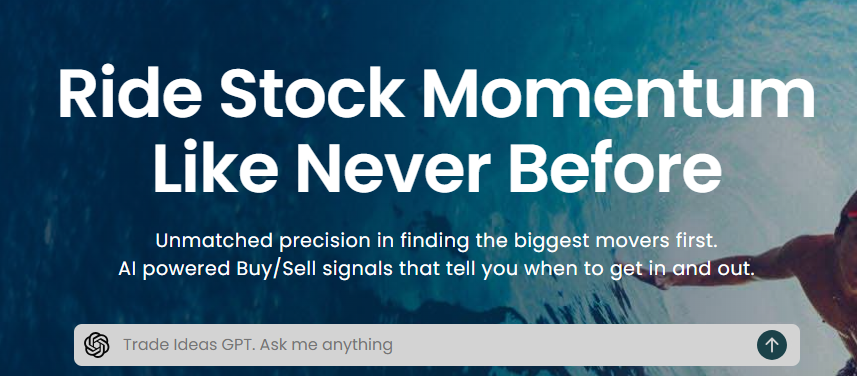20 New News To Selecting AI Stock Predictions Analysis Sites
20 New News To Selecting AI Stock Predictions Analysis Sites
Blog Article
Top 10 Tips For Evaluating The Accuracy And Performance Of Ai Platform For Predicting And Analyzing Stocks
To make sure you're using a system capable of delivering reliable predictions and insights It is crucial to test the accuracy and effectiveness of AI stock-predicting and analyzing platforms. These are the top 10 ways to analyze these platforms accurately:
1. Backtesting Results
What to look for: Determine whether the platform provides backtesting to determine how well its predictions have performed based with the past data.
The reason it's important: Backtesting can help you determine the accuracy of an AI model. This can be done by comparing predicted outcomes with actual historical results.
Search for platforms that allow you to customize backtesting parameters.
2. Real-Time Performance Monitoring
What to look out for: See the performance of the platform in comparison to the current market conditions.
Why it is Important: The real-time performance of a platform is a more precise indicator than the backtesting of historical data.
TIP: Watch real-time forecasts and compare them with actual market movements using a demo or trial for free.
3. Prediction Error Metrics
What to look for: Evaluate metrics like Mean Absolute Error (MAE), the Root Mean Squared Error (RMSE), or R-squared to determine the accuracy of predictions.
Why it is Important: The metrics measure the reliability of predictions compared to actual results.
Tips: Platforms that publicly share these metrics are generally more transparent and reliable.
4. Ratio of Success and Win Rate
What to look for What to look for: The platform's win percentage (percentage for accurate predictions), and success rate (profitability from the predictions).
Why it matters The high success ratio and win rate indicates a greater accuracy in predicting the future, and therefore potential profitability.
There is no perfect system. Be wary of platforms with unrealistic winning rate, e.g. 90% %+),.
5. Benchmarking Market Indicators
What to look out for: Compare the platform's predictions and performances to major market indices such as S&P 500 or NASDAQ.
Why it is important because it helps determine whether this platform outperforms (or is underperforming) the overall market.
Tips: Seek out consistent outperformance over multiple intervals, not only temporary gains.
6. Consistency in Market Conditions
What to look out for: Examine how the platform's performance is affected by different market conditions.
What is the significance of it A solid platform can perform effectively in all markets, not just those with favorable conditions.
Tip Test the platform's forecasts during volatile periods and market crashes.
7. Transparency in Methodology
What to look for: Understand the AI algorithms and models used (e.g. neural networks or reinforcement learning).
Why It Matters Transparency in methodology lets to assess the credibility and scientific rigor of the system.
Avoid platforms using "black box models" that don't explain how to generate predictions.
8. User Reviews and Independent Testing
What to look out for Review reviews from other users and look for independent tests.
What is important: Independent testing and reviews offer unbiased information about the platform's accuracy.
Tip: Look for reviews on forums like Reddit, copyright or financial blogs.
9. Risk-Adjusted Returns
What to look out for The platform's performance can be evaluated with risk adjusted indicators such as Sharpe Ratios, or Sortino Ratios.
Why it is Important What is important? on the level at which risk is taken to generate returns. This gives an overall image of performance.
Sharpe Ratio can be a useful indicator of the risk-adjusted return.
10. Long-Term Track Record
What to Look for How to evaluate the performance of the platform over a period of time (e.g. 3 to 5 years).
Why it is Important : Long-term performances are a better indication of reliability than the results of the short-term.
Tips: Avoid platforms that only show temporary or limited results.
Bonus Tip Test with a Demo account
Test the platform by using a an account for a demo to see how accurate it is in real-time. This allows you to test the accuracy and efficiency.
With these suggestions You can assess the performance and accuracy of AI stock predicting and analyzing platforms. Make sure you select one that matches your goals in trading and your risk tolerance. Keep in mind that no platform is able to be trusted, therefore using AI insights with your own research to the predictions made by the platform is typically the best option. View the recommended best ai trading software for website advice including ai stock trading, ai investment app, ai investing app, ai chart analysis, market ai, ai investment platform, market ai, investing ai, chart ai trading assistant, ai for trading and more.
Top 10 Tips For Evaluating Regulatory Compliance With Ai Stock Predicting/Analyzing Trading Platforms
Regulatory compliance plays a crucial role in evaluating AI platforms for stock prediction and analysis. Compliance assists in ensuring that the platform operates within legal frameworks and protecting user data. Here are 10 best tips to assess the regulatory compliance on these platforms.
1. Verify the licensing and registration
The regulatory bodies: Make sure that the website is licensed and registered by the appropriate financial regulatory body (e.g. SEC, FCA, ASIC, etc.) in your country.
Broker partnership: Ensure that brokers that are a part of the platform are licensed.
Public records: You can check the official website of the regulatory body to determine whether the platform has been registered and if there has been any violations in the past.
2. Assessment of the Data Privacy Compliance
GDPR - If your site operates within the EU or serves users from the EU make sure that it complies with GDPR.
CCPA for Californians, check compliance with California Consumer Privacy Act.
Policies on handling data: Go through the privacy policies of the platform to determine how user data is collected and stored. It also outlines how data is transferred.
3. Evaluation of Anti-Money Laundering measures
AML Policies: Ensure that the platform has AML policies that are strong to stop and detect money laundering.
KYC Procedures: Determine if there are procedures on the platform to confirm the identities of its users.
Examine the platform's monitoring of transactions. Does it keep track of transactions and report suspicious activity to the authorities?
4. Make sure you're in compliance with Trading Regulations
Market manipulation: Make sure that the platform is equipped to prevent market manipulation, such as fake trading, wash trading.
Order types: Verify if the platform is in compliance with rules regarding types of orders (e.g., no unlawful stop-loss hunting).
Best execution : Make sure that the platform uses best execution methods to make trades at the lowest price.
5. Examine the level of Cybersecurity Compliance
Data encryption: Make sure the platform uses encryption to protect user data in transit and at rest.
Incident response. Verify that there is an incident response plan for the platform for cyberattacks and data breaches.
Verify certifications.
6. Transparency as well as Disclosure and Evaluation
Fee disclosure: Make sure the website discloses all fees, including any hidden or extra fees.
Risk disclosure: Verify if the platform provides clear risk disclosures, specifically for leveraged or high-risk trading strategies.
Performance reporting - Examine to determine if there are accurate and transparent performance reports made available by the platform to its AI models.
7. Make sure you're in compliance with International Regulations
Cross-border trading If you are trading internationally, you must ensure that the platform complies with rules in all the jurisdictions relevant to you.
Tax reporting: Verify whether the platform offers tools or reports that can help users comply with tax laws (e.g., FIFO rules in the U.S.).
Respect for international sanctions: Be sure the platform strictly adheres to these rules and does not allow transactions between prohibited countries or entities.
8. Assessing Record-Keeping and Audit trails
Transaction records: Ensure that the platform keeps complete records for purposes of regulation and audit.
User activity logs Make sure your platform keeps track of all activities of users, like logins, transactions, and the changes to account settings.
Audit readiness: Make sure that the platform can provide necessary documents and logs in the event an audit by a regulatory agency.
9. Evaluate Compliance with AI-Specific Regulations
Algorithmic rules of trading: If a platform allows the use of algorithms, it must conform to European regulations such as MiFID II and U.S. Reg SCI.
Fairness and bias: Determine whether the platform is able to monitor and corrects biases within its AI models to ensure fair and ethical trading.
Explainability - Ensure that the system is able to provide clear and concise explanations regarding AI-driven predictions, decision-making, etc. as required by certain rules.
10. Review the User's Feedback and the Review Regulatory History
User feedback: Review user reviews to assess the platform’s reputation for regulatory conformity.
Review the history of regulations to see if there are any fines or penalties for infractions of the regulations.
Third-party inspections: Verify whether the platform is subject regularly to third-party inspections by a third party in order to ensure the platform's compliance.
Bonus Tips
Legal consultation: Speak with an attorney to make sure that the platform meets the relevant laws.
Free trial period: You are able to make use of a demo or a no-cost trial to try out the features that ensure compliance of the platform and its documentation.
Support for customers: Make sure whether the platform is able to provide support to customers with issues or concerns relating to compliance.
Follow these tips to evaluate the regulatory compliance and protection of your rights. Compliance is important as it does not just reduce the risk of legal liability, but also builds trust and confidence in the platform. Have a look at the top rated inciteai.com AI stock app for blog recommendations including stocks ai, ai stock analysis, ai software stocks, ai software stocks, free ai stock picker, can ai predict stock market, best ai stocks, best ai trading platform, ai options trading, ai trading tool and more.